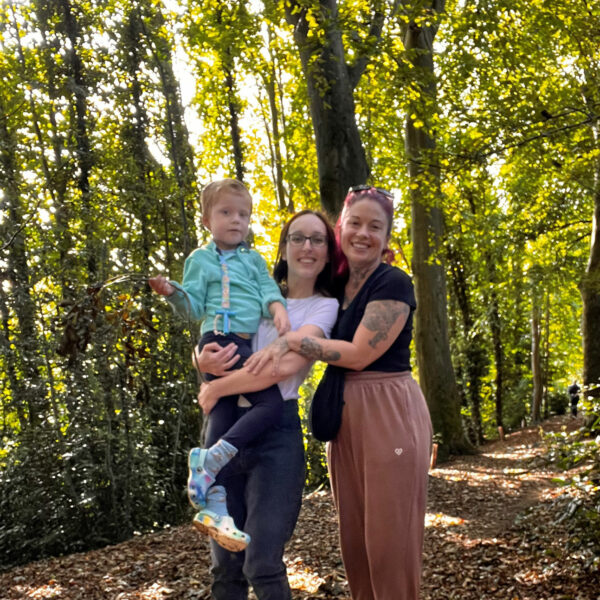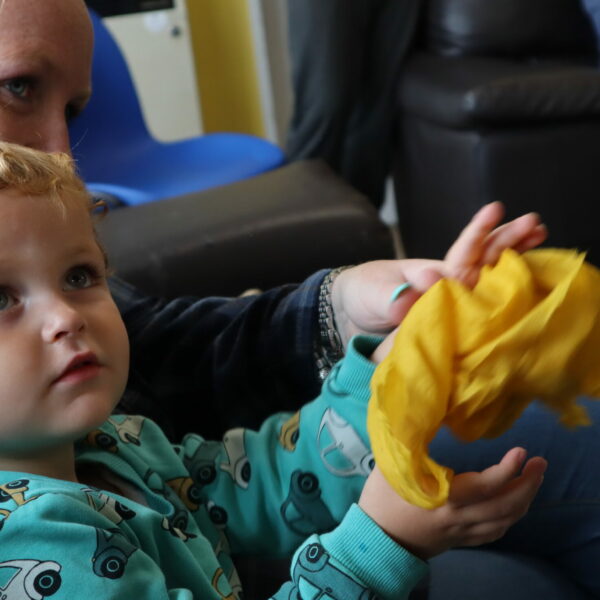ADHD
Information and signposting for parent carers of a child or young person with an ADHD diagnosis or for those considering an ADHD assessment.
What is ADHD?
Attention Deficit Hyperactivity Disorder (ADHD) is a lifelong neurodevelopmental difference.
Although every person with ADHD will experience it differently, it commonly affects executive function – such as planning, getting started and focusing on a task, or prioritising a series of tasks. It can also affect emotional regulation and some people with ADHD may be much more active and/or impulsive than people without it.
See this useful explanatory video from ADHD UK.
A word about language
We talk about ADHD as a ‘neurodevelopmental difference’ in line with our neuro-affirmative approach but also make reference to ADHD being a ‘neurodevelopmental condition’ as this reflects the language you are likely to hear when you talk to services, particularly during assessments by health practitioners. See our page on Amaze’s use of language for more information on this.
Characteristics of ADHD
Professionals usually categorise ADHD into three sub-types. But it’s important to remember that every person with ADHD will experience it differently, with their own combination of elements that are tricky and others that are less challenging.
Predominantly inattentive ADHD affects the way that people regulate their attention and focus, for example it may be harder to concentrate if a task is not particularly interesting or engaging. Some people may be more easily distracted from a task or find it harder to listen to and follow instructions, especially if there are many steps. It can also mean that planning is trickier – so it may be harder to prioritise tasks and get started on them, for instance. It can also mean that some people might seem forgetful or often lose things, as organisation can be more challenging than for people without ADHD.
Predominantly hyperactive ADHD affects a person’s ability to regulate their systems. Some people with hyperactive ADHD may need to move more than people without ADHD, which can make it harder than people without ADHD to sit still and focus. This can be a particular challenge at school, where there is an expectation that students will sit quietly and concentrate for long periods.
Some people with hyperactive ADHD may talk very fast or skip between topics, while others might do things impulsively or take more risks than people without ADHD.
Combined type ADHD – this phrase may be used by professionals if a person has elements of both of inattentive and hyperactive ADHD.
Co-occuring conditions
You may hear some neurodiverse people using the phrase ‘AuDHD’, to describe themselves, especially on social media. This is short-hand for having both autism and ADHD as they can be co-occurring conditions. However, it’s important to remember that not everyone who has ADHD will have autism and vice versa.
Some, but not all, people with ADHD may have other co-occurring conditions such as dyslexia or dyspraxia, difficulties getting to sleep or staying asleep, for example.
ADHD can change as a child grows older. On a day-to-day basis it can also be influenced by other factors such as sleep, stress levels and physical and mental health, as at times when someone is not feeling their best it can be harder to self-regulate.
Getting an ADHD diagnosis
The signs of ADHD that lead to a diagnosis are usually noticeable in children before the age of six and will be seen in more than one setting such as home as well as at school, for example.
If you are concerned that your child or young person may have ADHD, we would suggest that as a first step you talk to the Special Educational Needs Coordinator (SENCO) at the school, nursery or college. You could also speak to other professionals such as your GP or health visitor.
ADHD is assessed and diagnosed by the Child and Adolescent Mental Health Service (CAMHS) in children and young people from the age of 6 up to 18. Professionals such as a school SENCO or GP can make a referral to CAMHS, or you can self-refer to the service by contacting:
Brighton & Hove Wellbeing service
East Sussex Single Point of Advice
If your young person is aged 18 or over, they can contact their GP to discuss a referral for an ADHD assessment through adult NHS services. If they agree to refer, you may want to ask about the ‘Right to Choose’ scheme through which you have the legal right to choose the qualified provider that assesses you, as long as that organisation has an NHS Standard Contract with your local NHS Commissioning Group or NHS England.
Support while you are waiting for an assessment
If you are waiting for your child or young person to be assessed for ADHD, or you are thinking of asking a GP or your child’s school to make a referral to start the process, you can access some support while you are waiting.
For example, if your child is at school or nursery and staff have identified that they have a special educational need or disability (SEND), they are entitled to get any extra support they need to make progress, whether they have a diagnosis or not. You can read more about getting SEN support in school and nursery in detail in our Education section.
There are a number of other Amaze services that can help you, too.
Amaze’s ND Family Support service is for parent carers with a child or young person who is at any point along the assessment pathway for a neurodevelopmental difference such as ADHD or autism. You can get advice and guidance right from when a problem is first flagged, through assessment, diagnosis (or otherwise) and beyond.
We run parent support groups across Brighton & Hove and East Sussex, which you may find helpful to come along to. If it is tricky to attend groups in person, we also have online groups that parents can join.
For impartial information, advice and support on education, health, social care and disability related benefits, contact our SENDIASS advice line.
If your child or young person’s needs mean that they need much more care than other people of the same age, you might wish to consider applying for Disability Living Allowance for under 16s, or Personal Independence Payment for over 16s. You can apply, even if your child or young person does not have a diagnosis.
For details of other local services, see your Local Offer. This is your local authority’s online listing of all the services and support that are available to families of children and young people with SEND in the area.
Local ADHD support services
Support groups
ADHD Aware – information and advice for parent carers, young people and adults and regular peer support groups that meet online.
ADHD support group – informal support group in Hastings for adults who have ADHD or autism.
Amaze runs regular parent support groups in Brighton & Hove and East Sussex for parent carers in partnership with the local parent carer forums. Including groups specifically for parents of children with ADHD or those on the neurodevelopmental pathway. See our parent support groups page.
Brighton Pebbles – is a support group for parents and carers of children with any disability, especially those who find it difficult to access mainstream activities, for instance, those on the neurodevelopmental pathway or with distressing behaviour. Visit their website or join their private Facebook group.
More about ADHD
Videos
- Additudemag: https://www.additudemag.com/category/adhd-video/
Online or printed resources
- Amaze's ADHD fact sheet
- Amaze's Masking explainer (pdf 680kb)
- What is ADHD? – ADHD Aware website
- Additude – an American ADHD website with many relevant resources for families in the UK.
- ADHD Foundation – webinars, resources and information to support parents and carers of children and adults with ADHD.
- ADHD UK – a charity set up in 2020 to provide information, support and advocacy to people with ADHD.
- Young Minds – information about ADHD and mental health.
Books
Jessice Kingsley are a publisher that specialises in book about autism/ADHD and other neurodevelopmental differences for professionals, parents and children:
Get ND Family Support
Parent carers in Brighton & Hove or East Sussex with a child (under 25) at any stage on the neurodevelopmental pathway can get support from Amaze NDP Family Support.








